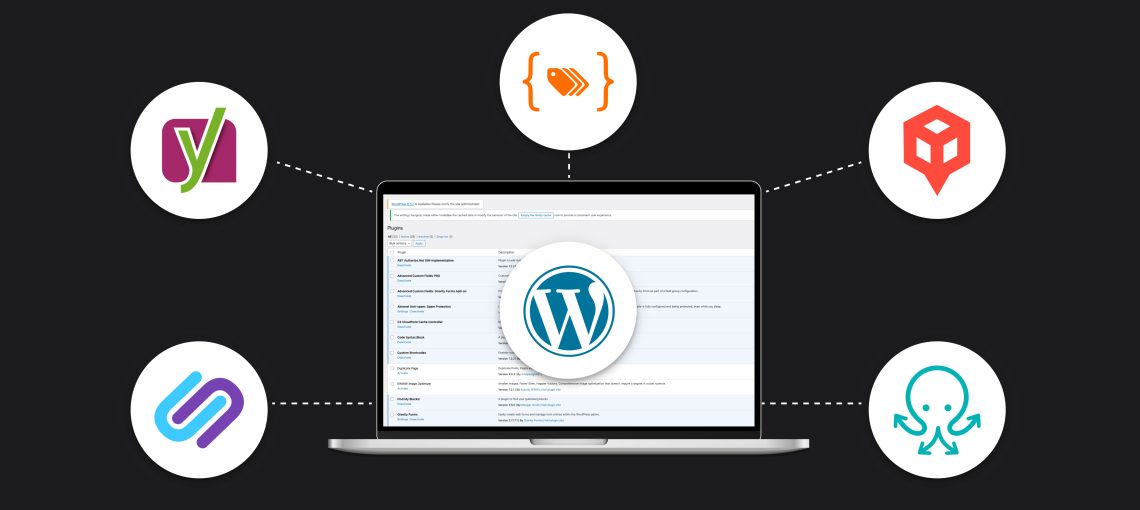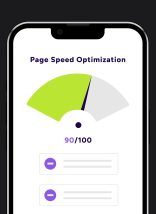Even though one of ABT’s core offerings is custom development, I have always advocated for not reinventing the wheel if necessary. So I’ve come across a number of plugins that I have since found indispensable in managing a large WordPress site – and our site isn’t even nearly as large as others! Here are the five top WordPress plugins I recommend for pretty much anybody. These may still be useful if you’ve got a 5-10 page site – but if you’ve got hundreds or thousands of pages and posts, I think these are badass!
Why did I write this? I’ve been the primary person responsible for the Atlantic BT website for more than a year now. By that, I don’t mean I do the development or write every single piece of content, but I am the main admin of the website. Similar to the role many of our clients are in, or you may be. I thought an article that isn’t based on popularity or what sells, but instead first hand practical use, would be helpful to you.
ABT does not get any referral fees or compensation, this is all just personal opinion by the author.
Yoast SEO Premium
Yoast is one of those plugins that it seems like everyone uses. Like, everyone. And for good reason – when it comes to managing SEO it’s got a great set of features and admin user experience too. I tried the premium version out for some of the features, and it’s here to stay. I won’t go into the free version features, just some of the premium ones that make it worth it.
Redirect Management
The feature I love the best is the redirect management. I try to stay up to date on making sure we don’t have any internal 404 links, and this helps a ton. You can manually add any redirects that you want – so if you’re doing spring-cleaning on your content, it’s really easy to make sure no one hits a dead end. But even better is the real-time redirect updates. If you change the URL of a page, and you hit update, Yoast will automatically create that redirect for you. Also, if you trash an old page that’s not relevant anymore, Yoast will ask if you want to redirect or create a 410 status code for that URL. (A 410 status code is how Google and the rest of the internet knows the page used to exist and was purposed removed).
Search Engine Previews
When you’re editing a page or post, Yoast gives you a preview of how a search result will look based on the title, excerpt, etc. With premium, you can also see previews of social shares for Facebook and Twitter, and even override the info each if you want to tweak it. It’s not a necessity to do so on every page, but if you’re heavy into social media, it’s a great option.
I haven’t really dug into the Yoast AI implementation, since we tend to use ChatGPT more regularly. And while there is a feature in premium where Yoast offers suggestions to link to other pages on your site, the next plugin is much better for that.
LinkWhisper
I was looking for an AI driven tool to recommend links to other pages on our site, beyond what Yoast was doing. I came across LinkWhisper and got that and a lot more.
Internal Linking
You’re able to generate more internal linking in a few ways. You can edit a page or post, and LinkWhisper will look at the content on the page and recommend links to other pages. From the “All Posts” or “All Pages” list you can also get a list of suggestions to link to that page. There are also some nice reports to give you insight to how much linking you’re doing all around.
Auto Linking
I think “auto linking” is the coolest feature. As an example, I could add “best WordPress plugins” to auto-link to this post. If that exact phrase appears in any existing content, or any new content, the link to this post will automatically happen!
Error Report and URL Changer
The last features which has helped a ton in regularly cleaning up SEO is the error report and the URL changer. The error report is a great way to find and fix broken links (both internal and external). The URL changer compliments Yoast Premium’s redirect feature wonderfully. Yoast will make sure that any existing links to old content don’t break. But it’s still best practice to not go through redirects and change the content to link to the new URLs. This is where LinkWhisper comes in. You add the old and new URLs, and instantly all your content is updated.
GTM4WP – A Google Tag Manager (GTM) plugin for WordPress
If you use Google Tag Manager, I think this plugin is a must. By putting in your GTM code, the plugin will add the necessary script on your site and has a lot of adjustments. There are a ton of settings which can get pretty technical that I won’t go into, but there are two main aspects that make this completely worth it.
In “Basic Data / Posts”, you can very quickly add information that go to GTM (which you’d probably want to push through to Google Analytics). Info like post author, title, categories, post type; if you’re big into analytics, and you want to break down the analytics in a number of ways, this makes it easy.
In “Basic Data / Visitors” is the ability to include data such as “is the user logged into the admin” and user roles. This becomes extremely valuable when you exclude, or make separate GA audiences for, logged in content editors and admin. Atlantic BT employees end up browsing the site a ton, including myself. I don’t want that traffic in our Google Analytics, though. With this feature, we can prevent our analytics from being inflated by our ourselves!
Find My Blocks!
This one is a little more technical, and more useful on sites like the ones Atlantic BT creates, where we build custom blocks. We recently did an audit to find out which custom blocks weren’t being used or catalog where they were. This is a free, light plugin which made that audit easy.
Whether you’re doing an audit, or you know you used a block (somewhere!) and can’t remember where – this plugin is a winner.
WP All Import & WP All Export
If you’ve got hundreds or thousands of posts and pages, and you like working in spreadsheets, this plugin pair is indispensable. Trying to export information from WordPress using the default tools is… underwhelming. These plugins allow creating CSV (and other) files customized to the fields you care about. You can save templates and really control what gets imported so you don’t incorrectly overwrite things.
If you’re in marketing and deal with SEO, exporting everything is wonderful so you can wholistically view your metadata and targeted keywords. Then you can work through your strategy in Excel or Google Sheets. If you’re going through a content audit or need to make bulk content fixes, the content field is something which is available for exports and imports too.









